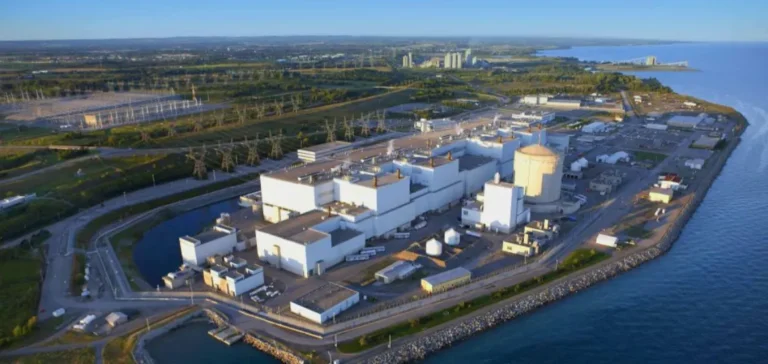Ontario Power Generation (OPG) will receive CAD3bn ($2.1bn) in equity financing from two government entities to support its small modular reactor (SMR) project at the Darlington site. The funding aims to mitigate construction and operational risks for the Darlington New Nuclear Project (DNNP), enabling eventual private sector participation.
Two public funds step in
Canada Growth Fund Inc, a CAD15bn investment vehicle established to attract private capital into Canada’s low-carbon economy, has committed up to CAD2bn for a 15% ownership stake. Building Ontario Fund, backed by CAD8bn from the provincial government to support revenue-generating infrastructure, will contribute CAD1bn and hold a 7.5% stake. OPG remains the project’s majority owner and operator.
A structuring project for energy infrastructure
The project plans the deployment of four BWRX-300 reactors developed by GE Vernova Hitachi Nuclear Energy, with a total capacity of 1,200 MW. This output is expected to power approximately 1.2 million homes, with the total cost estimated at CAD20.9bn. The first unit, SMR 1, is slated for completion by the end of 2030, with units 2 through 4 expected in the mid-2030s.
Funding will be released in two phases: the first tranche will cover initial construction of SMR 1, while a second tranche, contingent upon the achievement of specific project milestones, will support the remaining units. This approach seeks to align capital deployment with the evolving project risk profile.
An adaptable investment model
Canada Growth Fund and Building Ontario Fund stated their involvement provides a temporary financial framework to absorb technological and construction risks. The structure is intended to lay the groundwork for future private and Indigenous capital investment.
The project has been selected for expedited review by the federal Major Projects Office, which was created to streamline administrative processes and improve coordination across government levels for large-scale infrastructure projects.
Darlington site progress
OPG began early site preparations in 2022. In July, components for the Harriet Brooks tunnel boring machine arrived, with assembly scheduled for 2026. The 6.97-metre-diameter machine will excavate a 3.4-kilometre tunnel for the condenser cooling system.
Modules for the basemat—the reactor building foundation—are being delivered. The pre-assembly and fabrication buildings for structural and modular components have been completed. Foundations for the radiation waste, control, and service buildings are also finished.
Excavation continues on the reactor shaft, forebay shaft, and condenser cooling water launch shaft. Site grading for the three future SMR units has been finalised.






















